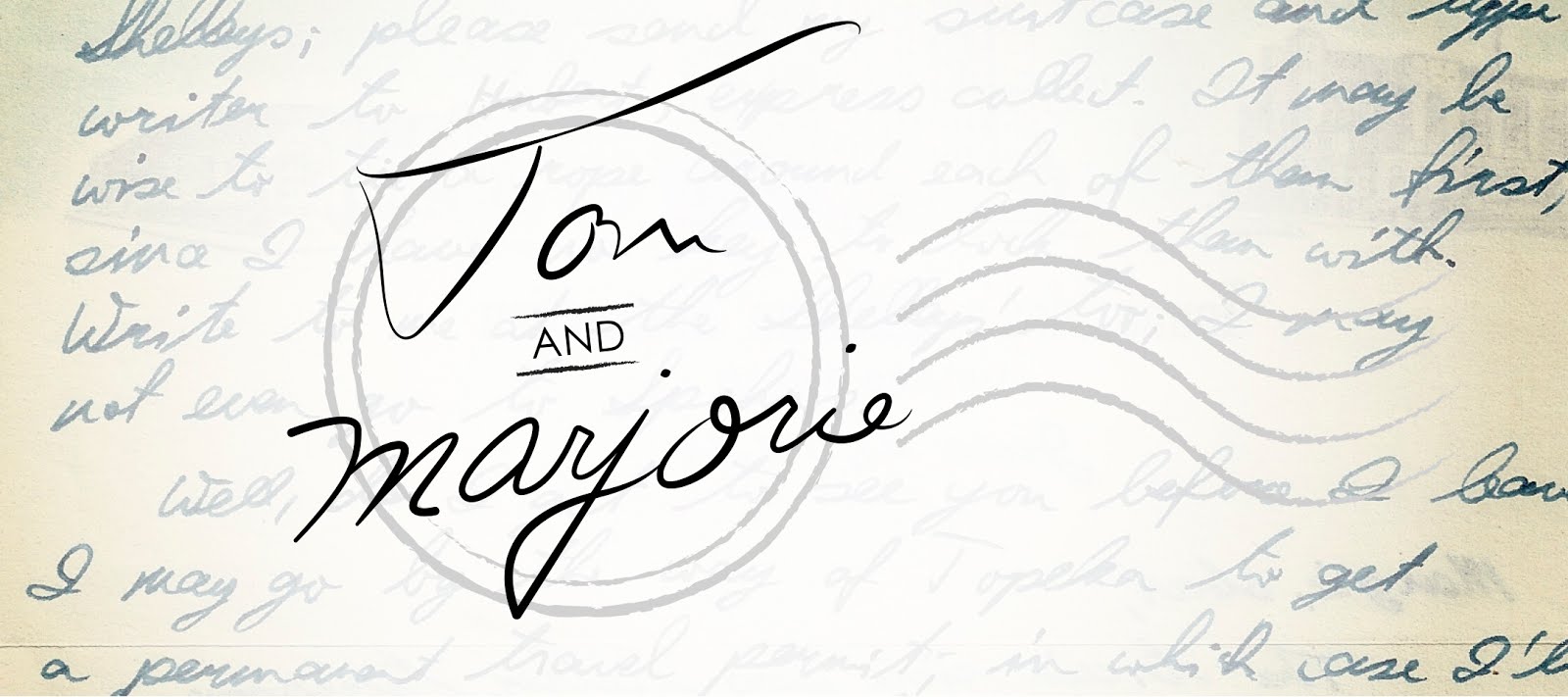
At age 18, Tom Doeppner was smuggled out of Nazi Germany. He was 26 before he saw anyone in his family again. Tom was my Grandfather, “Opa.” Cleaning out my Grandmother’s desk ten years ago, I found a small box where Opa had kept letters from his family, written as early as 1938. When I opened that box, I found a story that I never knew. This blog tells the story of what happened to Tom and his family in that decade of separation.
Wednesday, September 29, 2021
October 5, 1944: Opa's Not in Kansas Anymore
Monday, September 27, 2021
October 2, 1944: Happiness and Fudge
Saturday, September 25, 2021
September 27 & 28 & 30, 1944: Missing You
Letter from Opa to Grandmother, September 28, 1944.
Wednesday, September 22, 2021
September 26 (part 2 & 3), 1944: Almost Feminist
Monday, September 20, 2021
September 26, 1944: With and Without Girls

At Fort Leavenworth, Kansas, I was given a choice between Military Intelligence (probably because I spoke German and passable French,) and the Army Signal Corps. I figured that if I worked in Military Intelligence, I might have to spend the rest of the war translating German field manuals, while in the Signal Corps I would learn something related to my field. "No guarantees," they said...
(pg 30-31, From Nazi Germany to a Career in Freedom.)
I wonder if Opa told Grandmother about that choice or if he assumed her support (which she likely would have given). It makes sense that Opa would choose the classification that more closely matched his education and aptitude.
I hadn't realized Opa was the only college kid in the group. That's kind of amazing, and also likely why he was getting so much attention and praise from the officers. I guess it was late enough in the war that he didn't raise any suspicions of allegiance; to enlist in the Army at the lowest rank towards the end of the war would be a poor spy technique.
I had the "pleasure" of watching the old Army video on venereal diseases, and let me tell you, Opa is not kidding about them leaving nothing to the imagination. SO many pictures of diseased genitals in that video. They approach it from the assumption that all Army men are perfect sweethearts who are potential targets for harlots and seemingly sweet yet disease-infested women. As far as a teaching technique, it's not bad. Even more convincing were those photos. Woah.
I cannot imagine what the chaplain had to say that didn't feel weird after that.
Opa's experience with his new sergeant is a great indicator of how age and maturity are his best friends. He has seen this type before, and he knows how to live with it. His perspective on latrine duty is another indicator of his hard-earned wisdom (and cleverness), he knows that no one would volunteer for this service, but it takes less time and is somehow less terrible than K.P. (Kitchen Patrol), perhaps because of the time it takes? I hate cleaning bathrooms. Opa happily accepts his "low" assignment, because he knows it's all about perspective. He does a good job and doesn't complain, the grumpy sergeant is pleased, and Opa has his evenings free to write his wife.
I couldn't help but laugh when I read Opa's obligatory confession and follow up assertion of when he had fraternized with and without girls. He's transparent, showing Grandmother he can be trusted.
Opa misses Grandmother. The Army life is picking up, but his married life feels a little bit like it's on hold.
Friday, September 17, 2021
September 24, 1944: Defending Conscientious Objectors
Wednesday, September 15, 2021
September 23, 1944: Morbid Raincoat
Monday, September 13, 2021
September 22, 1944: No longer a Civilian























